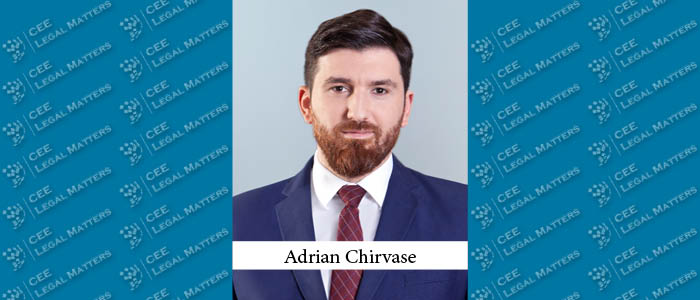Heightened institutional scrutiny and evolving enforcement have kept Popescu & Asociatii's white-collar practice exceptionally busy, with EU-fund mandates, tax-evasion probes, and cybercrime cases leading the charge, according to Partner Adrian Chirvase.
CEELM: What work has been keeping your white-collar practice busy over the past year?
Chirvase: Out of respect for the confidentiality of our clients and the sensitive nature of our work, I'll speak in general terms, but I can say it’s been a very active year. Our white-collar practice has seen continuous growth, both in terms of mandates and internal development. Over the past 12 months, we’ve restructured our team, promoted from within, and added two new Partners specializing in white-collar crime and compliance.
Lately, a significant part of our work has revolved around EU funds, particularly mandates related to the National Recovery and Resilience Plan. These cases typically involve complex cross-border elements and substantial financial exposure, often tens of millions of euros. Many of our clients are Romanian or international companies subject to scrutiny from European institutions, especially the European Public Prosecutor’s Office, led by Laura Kovesi. We’ve advised on matters that touch not just Romania, but also Spain, the Czech Republic, Poland, and beyond.
I should mention that we’ve been proud of our results – numerous cases have concluded with charges being dropped, and we’ve received excellent feedback from our clients. Despite Romania’s often negative reputation in matters of EU fund management, many of these issues come down to different interpretations of legal frameworks across jurisdictions, rather than intentional wrongdoing.
Beyond that, tax evasion remains a major focus. These cases are notoriously lengthy and complex, often requiring years to resolve. More broadly, we're seeing Romanian authorities strengthen enforcement across the board - new legislation is increasing compliance obligations and creating additional criminal offenses. For example, individuals with criminal convictions must now report to local authorities within seven days; failure to do so constitutes a new offense. This reflects the state's enhanced focus on law enforcement and compliance.
CEELM: What has been the primary driver behind these levels of activity?
Chirvase: The short answer is institutional scrutiny and legal complexity. Whenever large sums of EU money are involved, as with the National Recovery and Resilience Plan, you can be sure someone is monitoring how it’s spent. That creates a surge in compliance needs and, inevitably, disputes.
At the same time, Romania’s legal and enforcement landscape is shifting. Legislative amendments are being introduced to improve accountability, and enforcement agencies are becoming more assertive. White-collar crime remains a top priority for both national prosecutors and European institutions. This has translated into an increased volume of cases, more investigations, and, of course, more legal work for practitioners like us.
We're also seeing significant growth in cybercrime-related cases, and I expect this to become a dominant area going forward. Cyber threats are escalating rapidly, making both public and private entities increasingly vulnerable. What's particularly noteworthy is how these cybersecurity incidents are now directly triggering white-collar enforcement actions: data breaches lead to regulatory investigations, compliance failures result in criminal referrals, and cyber incidents often expose underlying corporate governance issues. We're building our capabilities in this convergence because modern corporate compliance increasingly requires expertise in both traditional financial crime defense and cybersecurity incident response.
CEELM: Finally, what do you think the next 12 months will look like?
Chirvase: If last year is any indication, we anticipate continued growth in activity. Allegations of systemic corruption remain a top priority for the new President's office, and tax evasion cases are also on the rise.
We expect this momentum to continue for several reasons. As Romania strengthens its enforcement framework to match EU standards, more sophisticated investigations and stronger bilateral and multilateral cooperation between authorities naturally follow. This evolution is already visible in our practice, as we're handling more complex, multi-jurisdictional mandates that reflect these enhanced enforcement capabilities. The result is a sustained increase in white-collar cases that require deeper expertise and cross-border coordination.
This should continue for at least the next five years. Until the broader regulatory and enforcement landscape settles and becomes more predictable, white-collar work will remain a core area of demand.
